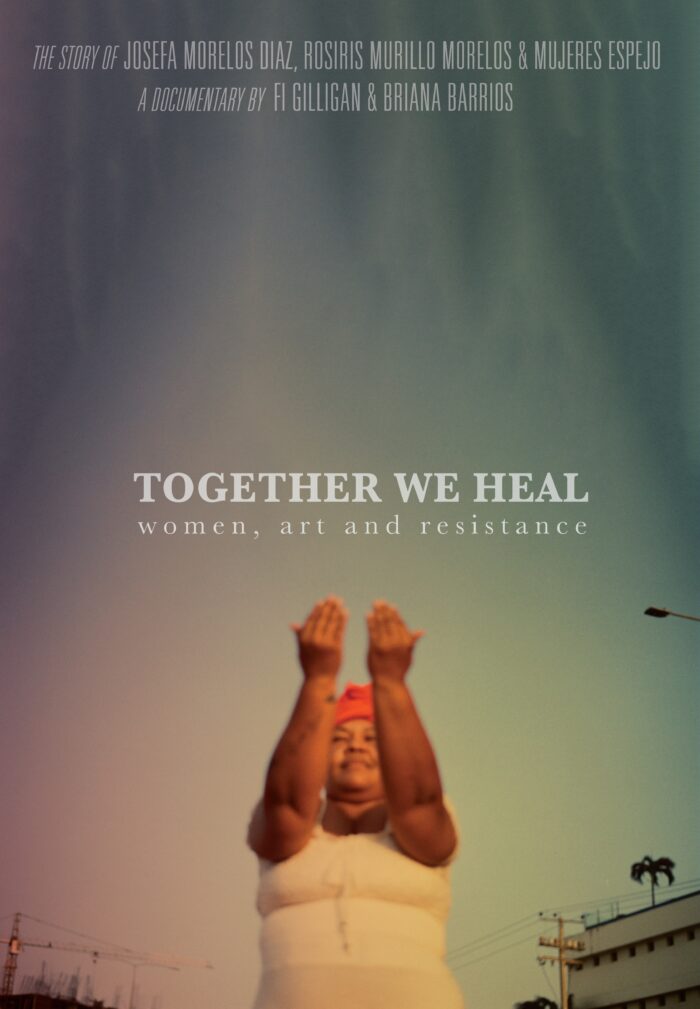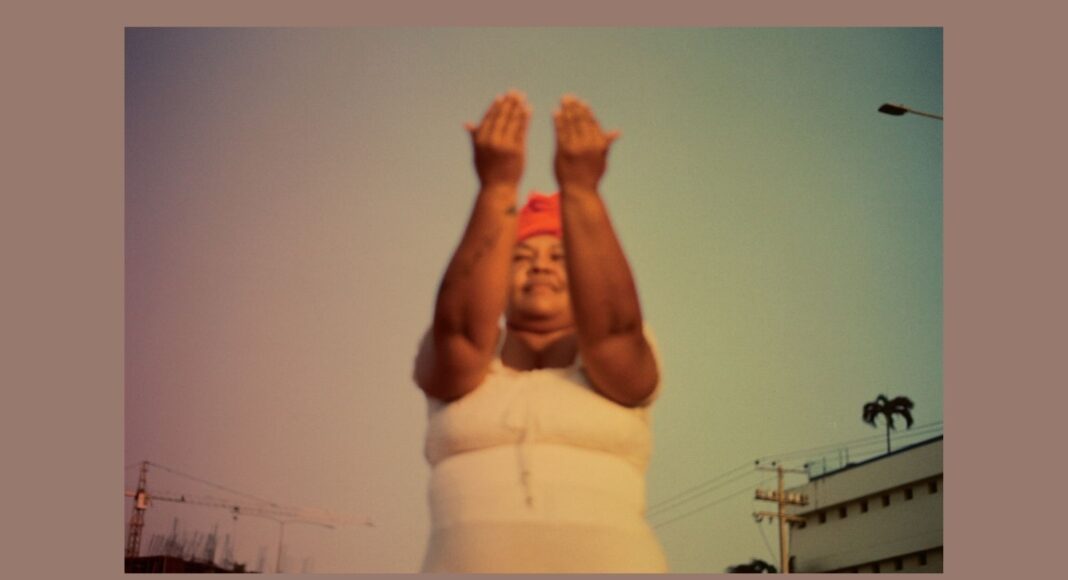
The documentary Together We Heal: Women, Art and Resistance tells the story of a group of women who have come together to heal their embodied suffering as predominantly Afro-Indigenous women who have been displaced. Grupo Artístico de Mujeres Espejo, based in the Santa Rita neighbourhood of Cartagena, was founded by mother-daughter duo Josefa and Rosiris. Their activities grew out of the need for peace activist and community leader Josefa to tell her own story. As narrated through the short documentary, the group approach healing through the lens of storytelling and art.
In this issue of Voz, director Fi Gilligan contextualizes this sensitive film and introduces the work of Mujeres Espejo. All subscribers will be able to access an exclusive link to watch the film at the foot of this issue of Voz.
Voz brings our loyal subscribers a long-read article each quarter, conveying the experience and analysis of our partners: activists, journalists, artists, academics. We hope that their in-depth testimony and commentary will help broaden our understanding of Latin America, and through it, the world.
The short documentary film Together We Heal: Women, Art and Resistance was co-created by the women of Mujeres Espejo and an international group of creatives from Colombia and the UK. It seeks to shed light on the importance of art and storytelling as a form of individual and collective healing, and to showcase this particular case of feminist resistance. It does so by focusing on the leadership of and relationship between Josefa and Rosiris, founders of Grupo Artístico de Mujeres Espejo.
For us, this documentary was an experience of introspection and healing. As women victims of the Colombian armed conflict, our bodies hold so much pain and trauma. It gave us the opportunity to search inside ourselves and share our stories, through music, dance and photography. But it also gave us the opportunity to see ourselves on screen; to reflect on how far we’ve each come and to witness the love and solidarity between us.
Rosiris Murillo Morelo, Director of Grupo Artístico de Mujeres Espejo.
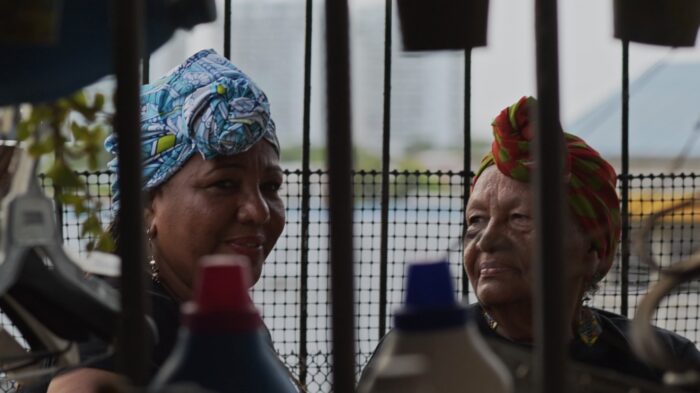
Colombia has been traumatized by one of the world’s longest civil wars. Despite the 2016 peace agreement between the Colombian government and the FARC-EP officially putting an end to an armed conflict dating back to the 1960s, everyday life for many people across Colombia continues to be shaped by fear. This is particularly true for marginalized groups, such as Afro-Colombian communities and Indigenous populations, as well as women and children.
Since the 1960s, violence and fearmongering, initially concentrated in rural parts of the country, has fed a constant trend of rural-urban displacement. This has accelerated the process of urbanization in Colombia and has placed Colombia second in the world, after Syria, in terms of its displaced population. While there are documented cases of mass displacements of entire communities – particularly Afro-Colombian and Indigenous communities – the vast majority of displacements have occurred ‘gota a gota’ [drop by drop]. Individual families have been forced to flee their homes, uproot themselves from their personal networks, and head towards the urban periphery to seek safety.
Once they reach the city, many internally displaced peoples (IDPs) are re-victimized by a racist, patriarchal, and classist society. Living alongside the urban poor, they face similar structural violence, a lack of socioeconomic opportunities, and unstable living conditions. In these new settings, IDPs find themselves faced with the prospect of re-building a meaningful life. As the majority of displaced people are women and children – with many being single parents and heads of households – this burden ultimately falls on women. This is the case for displaced women across Colombia, who have come together to address their victimization in creative ways.
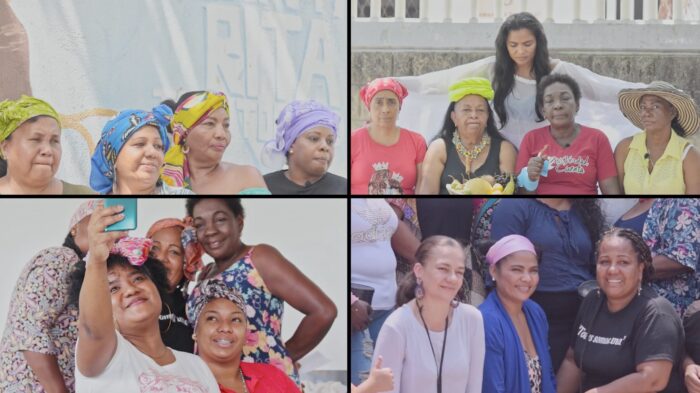
The Caribbean city of Cartagena is just one receptor city in Colombia’s devastating picture of internal displacement. Over the years, Cartagena has become home to IDPs from the nearby Montes de María – a mountainous region severely affected by the armed conflict – but also to displaced people and families from further afield, such as rural areas of Antioquia. More recently, the city has seen an influx of Venezuelan migrants, contributing to a wider growing refugee crisis in the country.
Once Spanish America’s largest slave port, Cartagena is a registered World Heritage Site. Its colonial walled city, Andalusian-style architecture, and Caribbean beaches have earned it the nickname ‘la heroica’ [the heroic]. But a mere 15-minute drive from the touristic centre is the barrio popular of Santa Rita. Like other barrios populares, despite the short distance, Santa Rita is poorly connected to the touristic centre. Public transport is expensive and routes are unaccommodating and do not serve the needs of the community. Local public amenities and infrastructure don’t match up to those of the glamorous touristic centre and hyper-wealthy Boca Grande area, which is indicative of systemic failure of the municipal government to sufficiently invest in working-class neighbourhoods like Santa Rita. This creates the sense of two disconnected cities, the formal and the informal, characterized by vast inequality.
From their own suffering and inherited trauma, they have built an extensive network of women dedicated to sharing and healing.
Based in Santa Rita, the artistic group Mujeres Espejo exists to resist this violence that its women members have experienced – and continue to experience – as predominantly Afro-Colombian women victims of the conflict. The group was founded in 2013 by mother-daughter duo Josefa Morelos Diaz and Rosiris Murillo Morelos. It grew from peace activist and community leader Josefa’s own personal need to tell her story of suffering and all that her body had experienced as an Afro-Indigenous woman originally from San Onofre in the Sucre Department. From her own suffering and Rosiris’ inherited trauma, they have built an extensive network of women that reaches beyond Santa Rita to other marginalized communities.
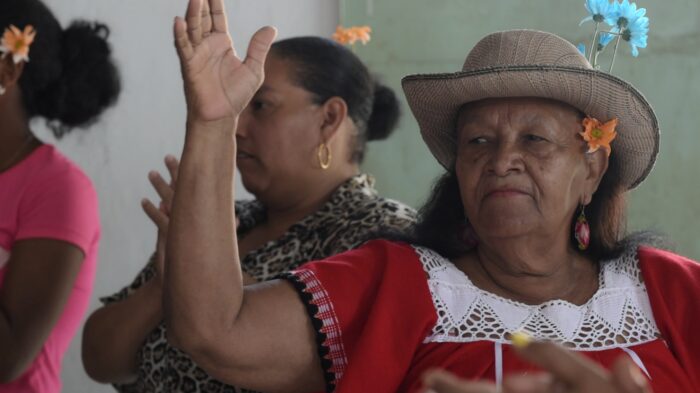
Mujeres Espejo has a particularly strong link with the fishing neighbourhood of La Boquilla, home to a tight-knit Afro-Colombian community with a long history of resistance in preserving their cultural identity and traditions. On top of structural racism and violence, the community has been fighting against sprawling hotel development since the 90s, which threatens to re-develop their ancestral land, due to the desirable sandy white beaches.
The leadership team of Mujeres Espejo delivers arts-based workshops, which enable women to explore their past, present, and futures through theatre, interpretative dance, and music, among other activities. They take a holistic approach to group work, addressing the physical, emotional, and spiritual, whilst also providing more individualised one-to-one mental health support and psychosocial care. Present throughout all their work is the symbol of the ‘espejo’ [mirror], which is used as a gateway to access and truly examine the inner self.
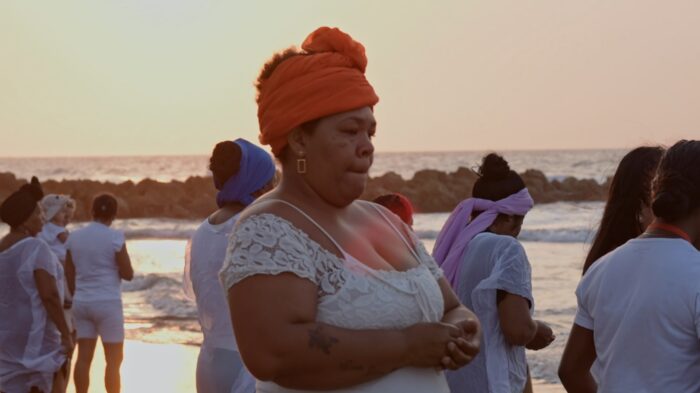
Like other women victims across the country, the women of Mujeres Espejo have seen little or no benefits or reparations as a result of the peace process. Instead, they rely on community-led initiatives to heal – both on an individual and a collective, societal level – and to build a life and a future free from violence.
Like other women victims across the country, the women of Mujeres Espejo have seen little or no benefits or reparations as a result of the peace process.
On an international level, Together We Heal aims to raise awareness of the plight of women in the wake of the Colombian civil conflict, and how they are actively responding to and reflecting on their victimization, to build a more positive future for themselves, their families, and their wider community. The hope is that showcasing this example of creative feminist resistance will contribute to challenging dominant narratives of conflict, in which women are traditionally presented as passive receivers rather than active resistors.
At the same time, Together We Heal offers an alternative to mainstream media presentations of Colombia, which tend to focus on, and even glamourise, narco-trafficking. It does so by inviting marginalised voices to share their experiences, and importantly, their compassionate and creative solutions, to contribute not only to peace and reconciliation processes in Colombia, but to also serve as an example and beacon of hope to women everywhere.
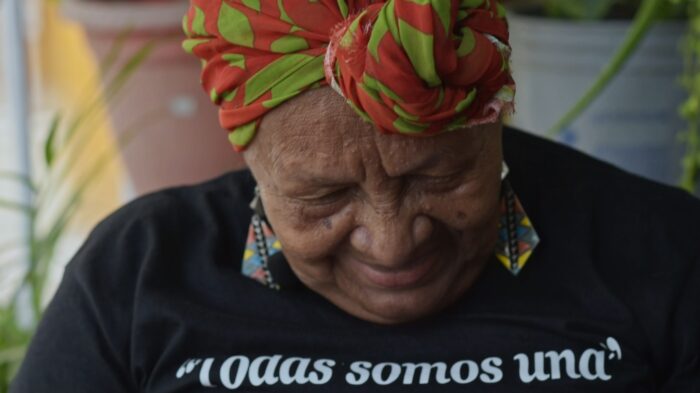
The documentary will continue to be a tool for us, one that will not only help us but all women – and men – who see it. Recording our faces, our voices, our stories was an act of peace. We are determined to continue on our journey toward peace, expanding our work so we reach more women and sharing the power of art as a form of healing.
Rosiris Murillo Morelo, Director of Grupo Artístico de Mujeres Espejo.
Watch the film
The short documentary Together We Heal: Women, Art and Resistance was available to LAB subscribers from September 2023 – January 2024.
Watch the teaser in Spanish or with English subtitles.
If you are interested in screening Together We Heal at your institution or venue, have any thoughts around promoting the documentary, or would like to get in touch with Mujeres Espejo, please contact Fi Gilligan on fi.gilligan24@gmail.com.
The film was produced and directed by Fi Gilligan and Briana Barrios Gomez through a collaborative process consisting of workshops, consultation and joint decision-making. The music workshops were led by Patapelá Música, a feminist collective from Sincelejo in the Montes de María, and the artisanal pinhole camera workshops were led by Colectivo Revelados from Bogotá.
The documentary was made possible thanks to generous individual donations and additional funding from The Maypole Fund, which funds feminist activism against militarism and war.
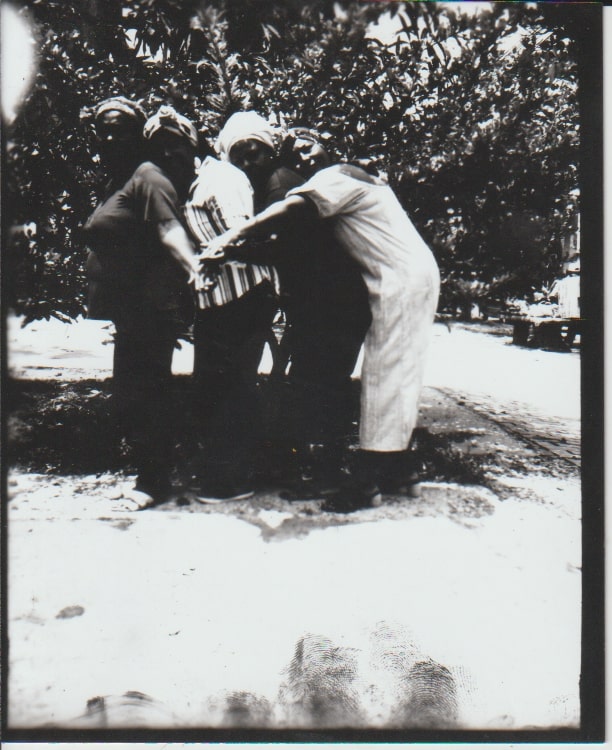
Fi Gilligan
Fi is a communications professional from London, specialising in co-produced creative projects designed to provide a platform for marginalized voices. She holds an MSc in Latin American Politics from University College London. She has experience of working in women’s socioeconomic inclusion in Argentina, Colombia, India, Nepal, and the UK.
Briana Barrios Gomez
Briana is a designer from Bogotá, specializing in research and design processes for social change. She holds a BA in Communication Design from Universidad de los Andes and a Postgraduate degree in Social Innovation from the Amani Institute in Bengaluru, India.
